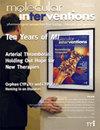Discordant Trajectories of the (Post-)Soviet (Post)Colonial Aesthetics
引用次数: 4
Abstract
After a short critical reflection on what is understood under anticolonial aesthetics and how it relates to the shift from political decolonization to a more epistemologically and aesthetically oriented decoloniality, the essay focuses on the seldom considered anticolonial and decolonial trajectories originating in the ex- and present colonies of the Russian/Soviet empire and post/neo-imperial Russia. It is analysed how these trajectories intersect with and diverge from the predominantly Anglophone and Francophone postcolonial conceptual and theoretical frames and what role is played in this configuration by the state socialist form of coloniality. Its most negative effects consist in recolonization presented as decolonization and the interrupted genealogies of anticolonial resistance and re-existence. As a result, each new generation has to start from scratch, while anticolonial thinkers and artists become enchanted by western (neo)liberalism presented as the only viable alternative to Russian and local authoritarian regimes.(后)苏联(后)殖民美学的不和谐轨迹
在对反殖民主义美学的理解以及它与从政治非殖民化转向更以认识论和美学为导向的非殖民化之间的关系进行简短的批判性反思之后,本文将重点放在很少被考虑的反殖民主义和非殖民化轨迹上,这些轨迹起源于俄罗斯/苏联帝国和后/新帝国俄罗斯的前殖民地和现在的殖民地。它分析了这些轨迹如何与以英语和法语为主导的后殖民概念和理论框架相交和分歧,以及国家社会主义殖民形式在这种配置中扮演的角色。其最消极的影响在于以非殖民化的形式出现的再殖民化,以及被打断的反殖民主义抵抗和再存在的谱系。因此,每一代人都必须从零开始,而反殖民主义的思想家和艺术家则被西方(新)自由主义所吸引,西方自由主义被认为是俄罗斯和当地专制政权的唯一可行选择。
本文章由计算机程序翻译,如有差异,请以英文原文为准。
求助全文
约1分钟内获得全文
求助全文

 求助内容:
求助内容: 应助结果提醒方式:
应助结果提醒方式:


